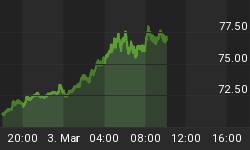Italy isn’t just for tourists anymore—now it’s for the ultra-wealthy looking for another choice venue to keep their billions from falling into the hands of the tax man.
For a flat fee of what amounts to $123,000 a year, the world’s billionaires can live in Milan, Venice, or any number of beautiful coastal or alp locales--entirely exempt from all offshore income and gains.
And if you’re willing to pay another $30,000 fee, you can extend the largesse to your family members, too. It’s renewable every year for up to 15 years, and it’s all part of Italy’s effort to speed up post-recession recovery.
The new tax incentive, introduced as part of the 2017 budget, hopes to reel in “very, very rich people,” Fabrizio Pagani, Chief of Staff of the Italian Ministry of Economy and Finance, told Bloomberg.
Pagani is eyeing “the usual suspects”: Billionaires from the UK, Switzerland, Russia, the US mostly, and a smattering of exorbitantly wealthy people from Norway and the Netherlands. He’s also hoping to lure some Italian expats back home.
Alluring as it is, there is not yet any indication that billionaires are flocking to Italy. According to Pagani, 150 have sent out feelers so far.
The competition is stiff, and the race is on across Europe to create the most desirable tax haven for the world’s wealthy.
And the European Union (EU) may be helping its own cause along, with its recent blacklist of 17 other tax havens--all outside the block. The list, released Tuesday, was accompanied by a ‘graylist’ of another 47 countries.
The blacklisted countries, which feature South Korea, Guam, Panama, United Arab Emirates and Saint Lucia—among others—set the stage for restrictions on EU funding or investments from the European Investment Bank.
The immediate criticism, of course, was that no EU countries appeared on the list.
While Italy is publicly impressed with its first 150 inquiries, it’s up against some big European players, not to mention the rest of the world’s tax havens. Related: 12 Months Or 27 Years For ‘Pharma Bro’ Fraudster?
Luxembourg is a veteran tax haven, and for such a tiny country, it’s managed to thrive off of regulatory nuances and tax loopholes. It also isn’t carrying around Italian-style political baggage.
Italy will have to compete with the Netherlands and Ireland, as well. Both, however, are coming under pressure over reputation and reforms may in the works.
But the Italians are desperate to recover; and gaining tax haven status among European veterans isn’t the only trick they have up their sleeve.
They’re also offering up cheap real estate to revive rural areas. In early February, the authorities announced the sale of homes in town of Ollolai, on the island of Sardinia, for $1. The only catch is that investors must renovate and sell within five years.
Ten years after the global recession, Italy’s economy is still struggling—a fact that is the centerpiece of the campaign for landmark national elections set to take place on 4 March. The dire economic situation has led more than 1.5 million Italians to leave the country since the financial crisis.
Italy wants them back, but they would prefer to trade them for the world’s billionaires.
By Charles Benavidez for Safehaven.com
More Top Reads From Safehaven.com:

















